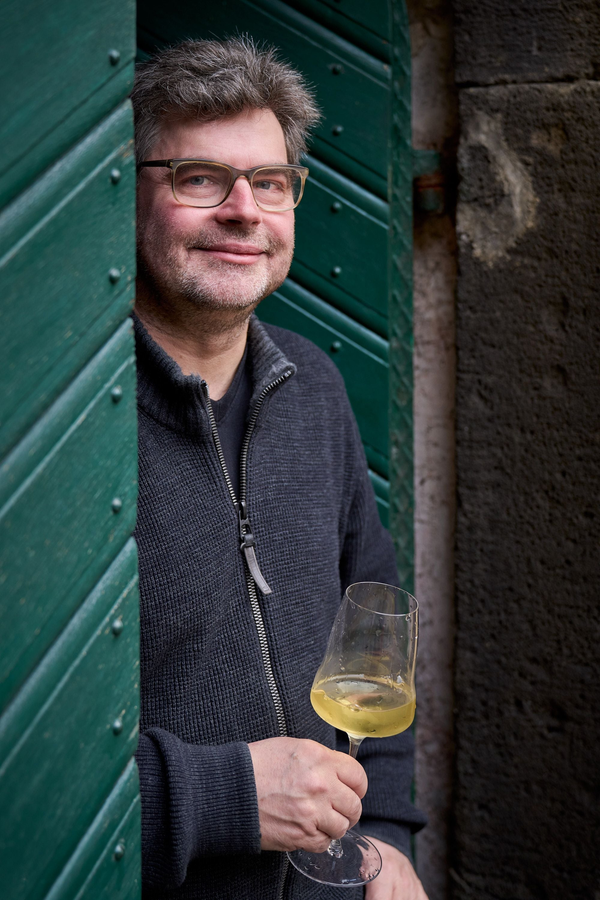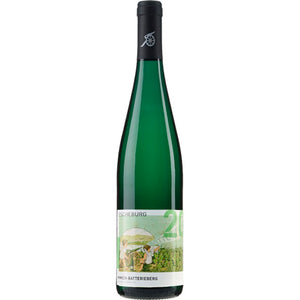
Immich-Batterieberg
Immich-Batterieberg is one of the oldest estates in the Moselle Valley: the estate's roots can be traced back to 1425. The most significant event for the farm located in the middle of the Mosel occurred in the middle of the 19th century, when the Immich family decided to modify the terrain and practically blew up an entire mountainside with thousands of kilograms of black powder into the sky. In the middle of the smoke, the Batterieberg plot remained, which today is considered one of the best places in the Mosel valley for growing Riesling! Crazy world, amazing history.
Immich-Batterieberg's own 13-hectare orchards in Enkirch are located on almost vertical slopes in the immediate vicinity of the Mosel river. The farm's specialty is the very old Riesling vines, which have not been grafted onto American vine root, which makes them extreme exceptions on the European continent. Apart from the Herzchen shelter, all other vines on the farm are ungrafted. The maximum yields are only 35 hl/ha, and the grapes produced are even more concentrated and nuanced. The farm's vineyards have been managed with organic methods since 2009, after the previous owner went bankrupt and experienced winemaker Gernot Kollmann took over the farm. Starting with the 2022 vintage, the organic certificate will also appear on the labels of all wines from our own vineyards. Since Gernot believes that the final quality of the wine comes from the grapes grown on the slopes rather than the organically cultivated grapes, and there are no organically grown hillside grapes available in the area, not all wines can be certified.
On the cellar side, the traditions of the 600-year-old farm are maintained. The pressing of the grapes is strong and takes a long time to extract as much flavor as possible. The juice flows from the presses into steel tanks by gravity and is allowed to settle for a few hours to a day before being transferred to steel tanks or old barrels to ferment. There hasn't been a single gram of industrial yeasts, let alone enzymes, in the cellar since 2007, and the wines are not modified in any way. Even the pied de cuve is not used by Gernot to start the fermentation process of the wines, so it really is "minimum intervention" winemaking. The wines are allowed to mature for at least a year on the lees before a little sulfur dioxide is added to them and they are bottled.
Gernot has garnered wide acclaim and is considered the wonder man of dry Mosel rieslings. Before his own farm, Gernot has worked as a winemaker for both Dr. Loosen and Van Volxem, in addition to which he has consulted on several different projects. According to Gernot, riesling can have a wild personality as long as the end result is perfectly balanced. If you want to taste the combination of the Mosel's amazing growing environment and exceptional visionary winemaking, pour Immich-Batterieberg wines into your glass!
The farm's annual production is around 70,000 bottles.
https://www.batterieberg.com/




